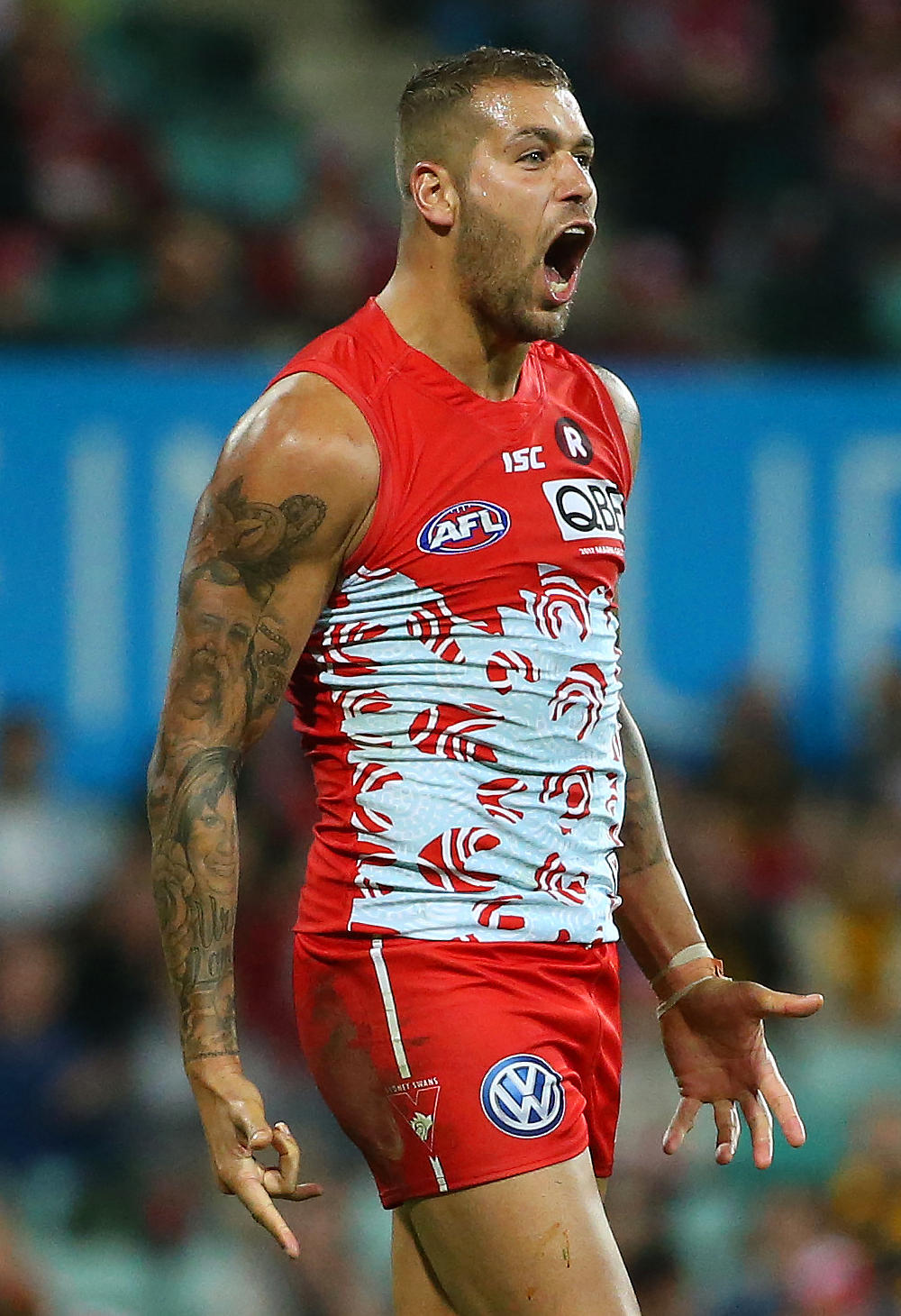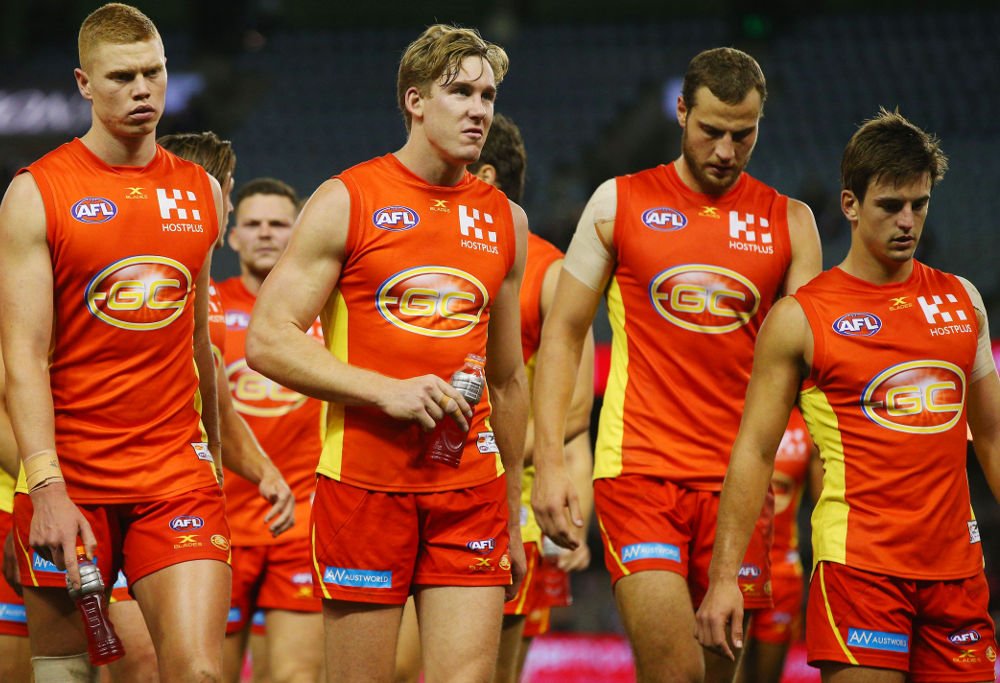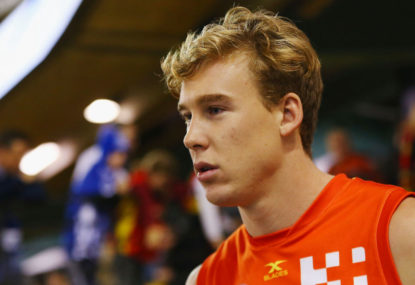With Tom Lynch seemingly out the door at Gold Coast, once again we have no shortage of talking heads and internet commenters decrying free agency as ruining the game.
The same old arguments are getting wheeled out: the top clubs get better, the bottom clubs get shafted, players only care about money and so on.
Now, the AFL free agency system is far from perfect, but let’s look at the arguments we get each year to see if they have merit.
The good clubs get all the best players
‘The rich get richer’ rolls off the tongue of just about every free agency critic at this time of year. There have been 66 free agents change clubs since it became legal in 2012, and this is how each club has fared, from most to least:
6: Essendon
5: Collingwood, Carlton, Melbourne, North Melbourne, Port Adelaide
4: Gold Coast, Hawthorn, Richmond, Western Bulldogs
3: Brisbane, Geelong, GWS, St Kilda, Sydney
2: Fremantle
1: Adelaide, West Coast
You’d think Hawthorn and Sydney had a monopoly on free agents. They haven’t.
Three of Essendon’s free agents came in the year their players were suspended and needed to top up their lists.
The fact that recent strugglers such as Melbourne and Carlton have signed so many free agents, and recent grand finalists Adelaide and West Coast have only signed one each, should show that free agency doesn’t seemingly make or break a premiership tilt.
Of those 66 free agents who have moved, 33 – exactly half – were delisted by their original club. Free agency simply allowed them to join a team that wanted them, without having to join the draft – which was a major reason free agency was brought in originally.
Of course, there are free agents, and there are free agents – Colin Sylvia is no Buddy Franklin. So let’s look at players who had made an All Australian team before leaving.
Brendon Goddard left St Kilda to join Essendon
Nick Dal Santo left St Kilda to join North Melbourne
Dale Thomas left Collingwood to join Carlton
Lance Franklin left Hawthorn to join Sydney
Nick Malceski left Sydney to join Gold Coast
James Frawley left Melbourne to join Hawthorn
James Kelly left Geelong to join Essendon
Tom Rockliff left Brisbane to join Port Adelaide as a restricted free agent
So of the few All Australians who have left their clubs, only St Kilda has lost more than one – and Nicky Dal was pushed out – while only Essendon has gained more than one, and James Kelly was a top-up player.
It’s not only the top sides receiving free agents, and it’s not only the bad sides losing them.

AAP Image/David Moir
Players only care about money
If players only care about money, then lower teams would be getting players left and right; they’ve got the most cash to throw around.
Or, players get criticised for joining teams that are already good so they can win. This generally means they’re leaving money on the table.
But more often than not, players don’t end up going anywhere.
Just in the last few weeks, we’ve had Tom McDonald, Marc Murphy, Rory Sloane, Jeremy McGovern and others all re-sign with their clubs rather than hit free agency, while last year saw Dustin Martin, Nat Fyfe and Josh Kelly do the same.
AFL players are still far more loyal than most other professional athletes.
So what’s the problem?
There are problems in AFL player movement, but it’s not solely to do with free agency. Instead, clubs aren’t using restricted free agency properly, any offer made to a restricted free agent can be matched by the players current club, andn other leagues – such as the NBA – it’s basically expected restricted free agents will sign an offer sheet with another team.
Even their current team is willing to pay anything to keep them, they will often wait for a rival team to make an offer first. That way, the market decides the value for a player, meaning the current team doesn’t pay more than the guy’s worth and the player can ensure he isn’t held to ransom by his current team expecting a discount out of loyalty.
No AFL club has matched an offer on a restricted free agent. Why not?
So long as they have the salary cap space, the Suns could match any offer made to Tom Lynch and keep him. True, you may have a miscontent on your side, but he’s a miscontent you can trade somewhere else and likely get more than a compensation pick.

Photo by Michael Dodge/Getty Images
Free agency is meant as a reward for veteran players to choose where they want to work. The reason they’re required to have been in the system for a few years before they become free agents is to protect the clubs that draft them, so they’re able to get some value from their draft picks.
But clubs don’t have any protection at the moment. Currently, a player doesn’t even have to wait until free agency to pick where he wants to play – if he tells the club he wants out and demands a trade to a particular team, there’s nothing the club can do, because players are able to veto trades if they don’t want to go somewhere.
Think Jaeger O’Meara demanding a trade to Hawthorn after only four years, or Brisbane’s ‘Go Home Five’ a few years back.
This has to stop. If a player wants out only a few years into his career, that’s fine – but the club that drafted him should be able to send him to wherever they’ll get the best return.
It’s speculative, but you’d imagine, say, Gold Coast would be better off if they’d been able to send Dion Prestia, Charlie Dixon, O’Meara and others to any club that would pay the most.
Other codes have measures in place to make it easier for clubs to retain their players.
Most obvious would be financial advantages. In the NBA, a player’s team has his ‘Bird rights’, meaning they are able to offer him more years and more money in a contract than rival teams.
Or, the AFL could allow teams to go over the cap by a certain amount if the money is used to re-sign one of their own free agents.
Look, player movement is never perfect – that’s why bargaining agreements are negotiated every few years. And no, the AFL’s free agency system is far from perfect, but it doesn’t seem to be the league-wrecking disaster many make it out to be.
































































































